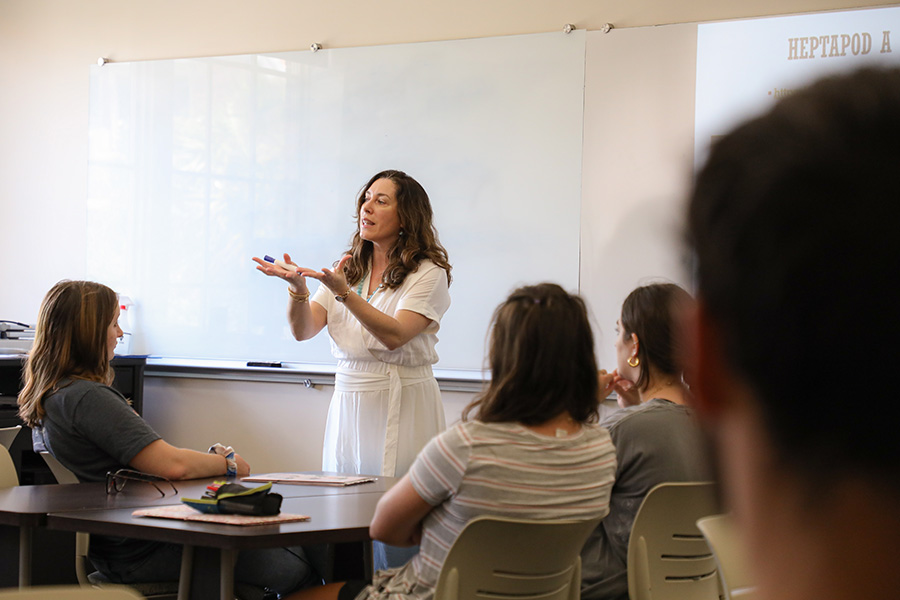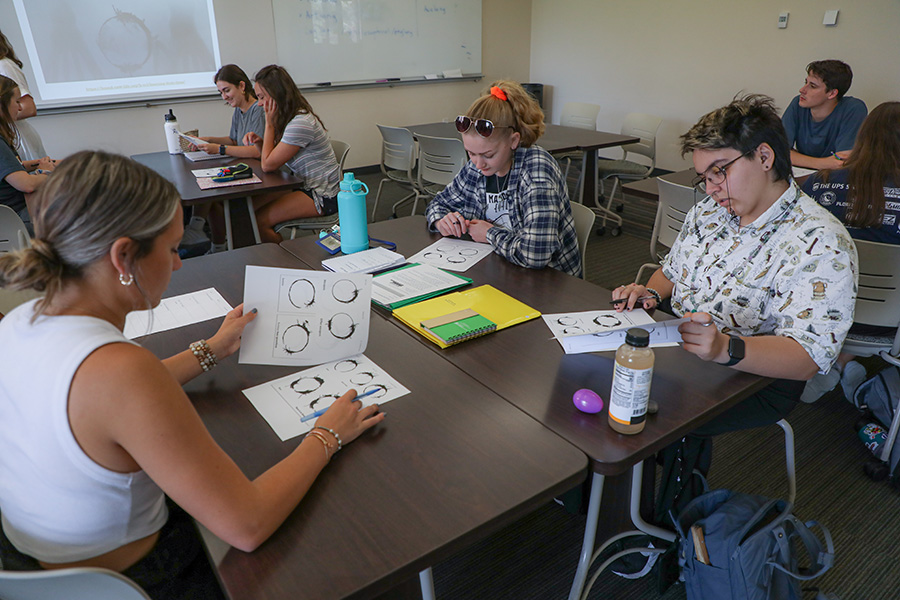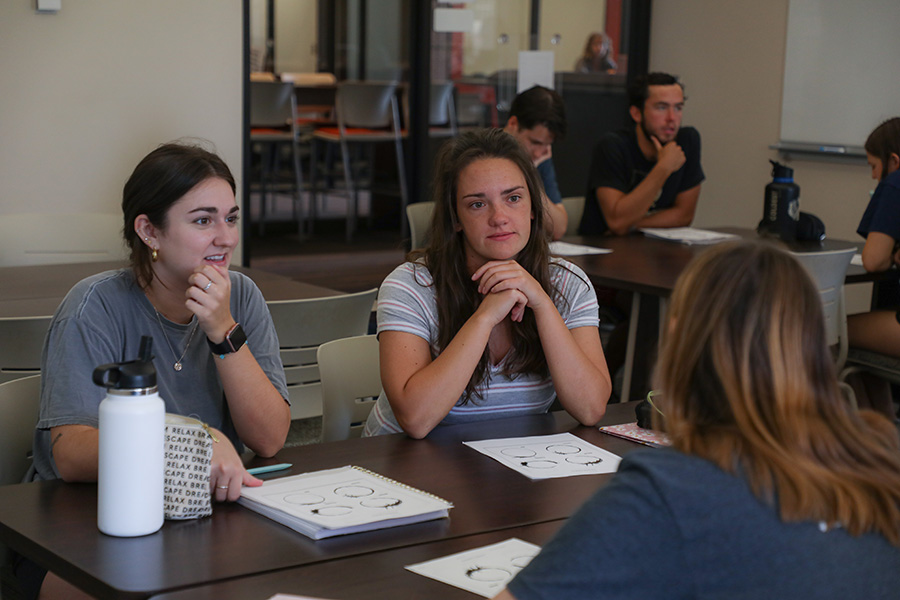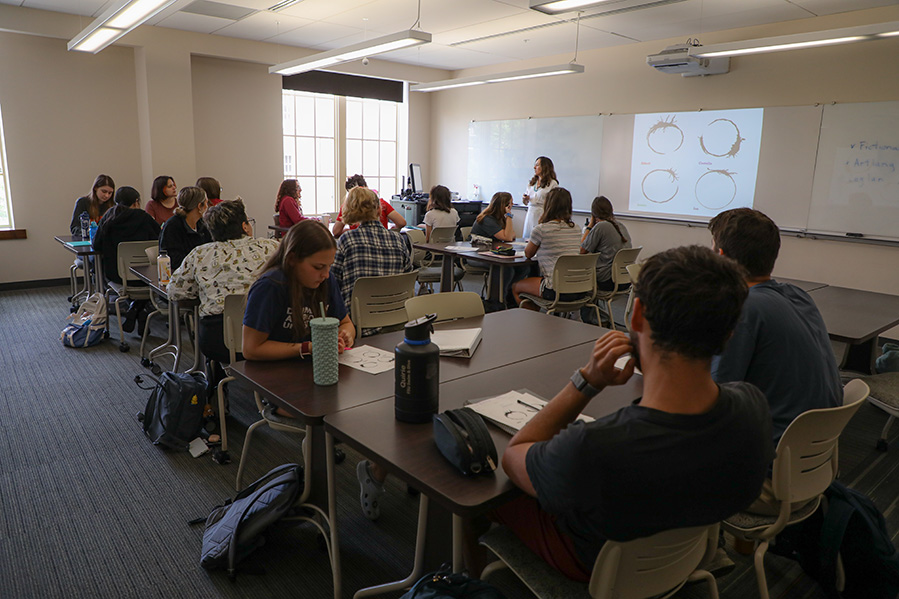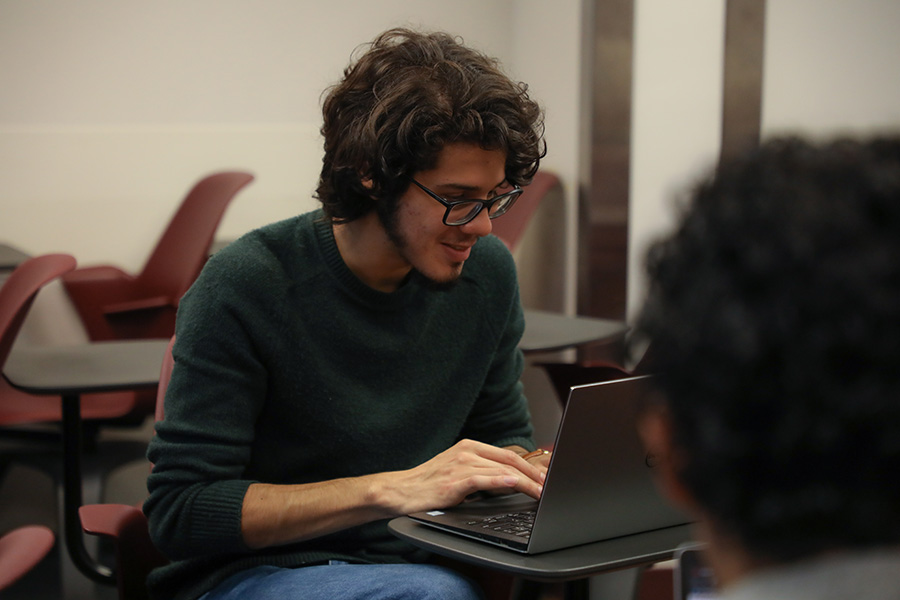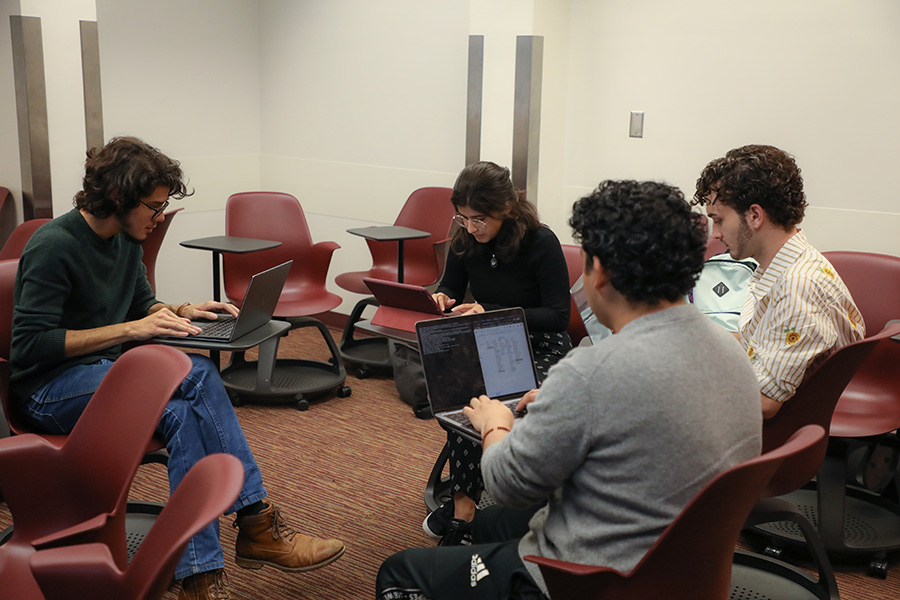FSU Linguistics Program prepares graduates for careers in tech, science, education, law and more
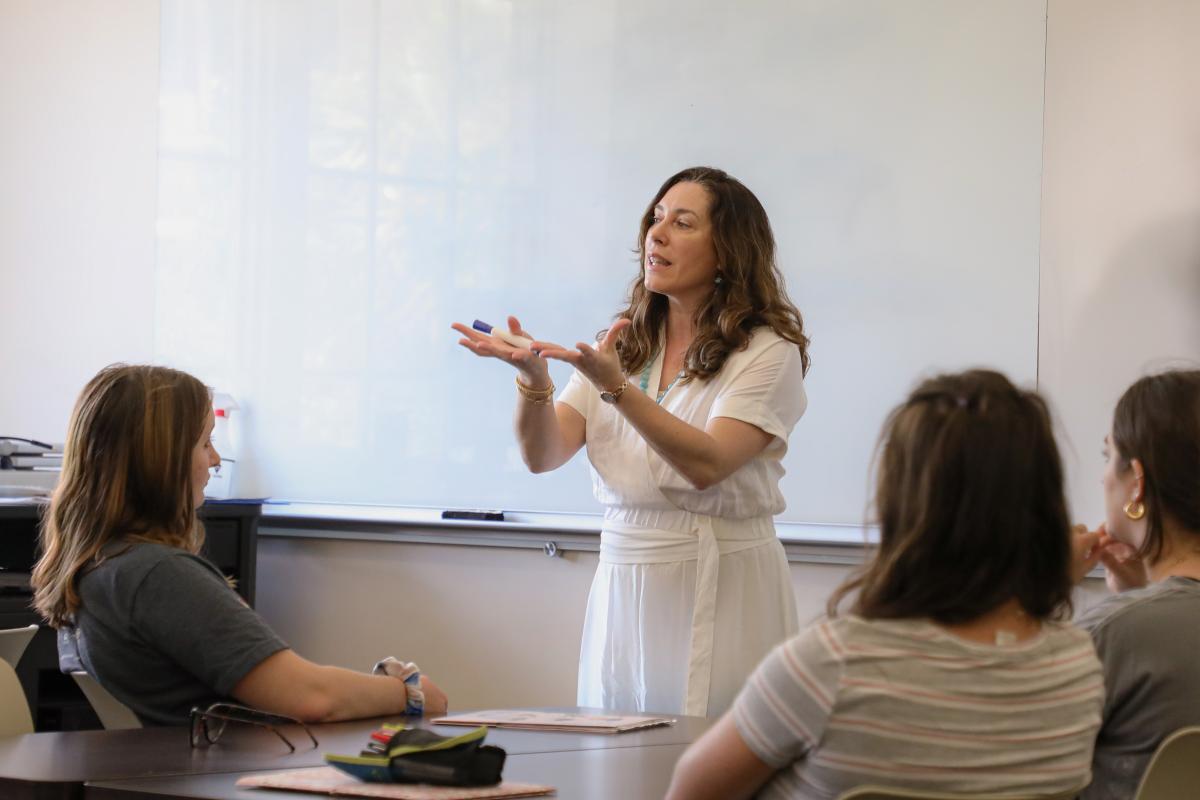
Language is among the strongest threads that bind societies together — it’s the foundation for how we interact, from interpersonal relationships to business transactions and more.
Linguistics, the scientific study of language, provides a richer understanding of our world, how humans engage and communicate, and how this knowledge integrates with other thought processes. Through scientific analyses, linguistics reveals how language shapes our lives, how we experience the world, and even gives insight on the structure of the brain.
Trained linguists are in high demand across job markets, and Florida State University is preparing students for success across industries in this highly interdisciplinary field through its undergraduate degree program in linguistics.
“Studying linguistics grants a broader understanding of the science behind language, which includes how meaning changes depending on context, how language is acquired, the relationship between language and social factors, how language functions in the brain and more,” said associate professor of Spanish and linguistics Antje Muntendam who played a pivotal role in the development of the program and its 2021 launch. “Our students develop invaluable skills as they work through courses combining insights from many disciplines including psychology, education, computer science, anthropology, to name a few.”
FSU’s Linguistics Program, offered through the Department of Modern Languages and Linguistics in the College of Arts and Sciences, supports aspiring linguists as they explore the structure and meanings, variability, acquisition, processing, and spatiotemporal dynamics of language.
Linguistics complements humanities and science-related fields — while cognitive psychology and neuroscience provide an understanding of how the brain works, linguistics offers a deeper understanding of the structure of languages.
FSU offers introductory courses to phonology, psycholinguistics, sociolinguistics, child language acquisition, second language acquisition, syntax, descriptive linguistics, and historical linguistics, among others. It also offers computational linguistics, a computer-based approach to linguistic phenomena used in tandem with data science techniques to best understand patterns in data.
“Linguists work in fields such as teaching, translation and interpretation, voice and speech recognition software development, literacy programming, curriculum development, data analysis, language documentation and revitalization, U.S. intelligence and foreign service, and even for tech giants including Google, Amazon, and Duolingo, to name a few,” said associate professor of Spanish and linguistics Lara Reglero, another key figure in the program’s establishment.
For the 35 undergraduate students enrolled this fall, the linguistics program provides a Bachelor of Science or a Bachelor of Arts track, depending on coursework, and equips students with skills to investigate sounds, structures and meaning in human language. Students can pursue a general linguistics major or linguistics and languages major, and the program is complemented by LINGO, a student linguistics organization. Students in any field may supplement their education with courses relevant to their discipline with a minor in linguistics or in linguistic entrepreneurship, which was established in partnership with the Jim Moran College of Entrepreneurship.
Undergrads also have many options to pursue linguistics research, including with the Undergraduate Research Opportunity Program through the Center for Undergraduate Research and Engagement or by working as research assistants on graduate student or faculty projects. Students are involved in all stages of research activity, including participant recruitment and data collection and analysis, and have access to program resources such as the Language Processing and Eye Tracking Lab, the Phonetics Lab, the Psycholinguistics Lab, and a Second Language Acquisition Lab.
Eva Xioutas, a rising junior in linguistics who is also majoring in international affairs, through the College of Social Sciences and Public Policy, worked as a research assistant alongside Muntendam and investigated bilingualism with Spanish and Quechua, an indigenous language spoken in South America. Following graduation, Xioutas plans to apply her linguistics studies as she attends law school.
“Linguistics is one of the keys to exploring how different cultures and groups communicate, which will be important to know in my pursuit of a law degree,” Xioutas said. “The most interesting part is discovering how every single language is complex and unique. Studying patterns, inflection, dialects, and more has been eye-opening.”
Students who wish to take their linguistics exploration further can continue their study at FSU at the graduate level. The graduate program in Hispanic linguistics offers Master of Arts and doctoral degrees in Spanish with a concentration in Hispanic linguistics, or students can pursue a combined master’s in Hispanic linguistics and literature. Research areas include bilingualism, language contact, second language acquisition, heritage language acquisition, phonetics/phonology, syntax, psycholinguistics, and more, and some students travel internationally to conduct research in Spain, Peru, Bolivia, and Portugal, among other countries.
“What we are the most excited about is how much the program continues to grow and how we can offer multifaceted courses and additional research opportunities for our students,” Muntendam said. “As the job market continues to grow and diversify, we can’t wait to see how linguistics becomes even more integrated in industries.”
To learn more about the linguistics program at FSU, visit modlang.fsu.edu/programs/linguistics.

